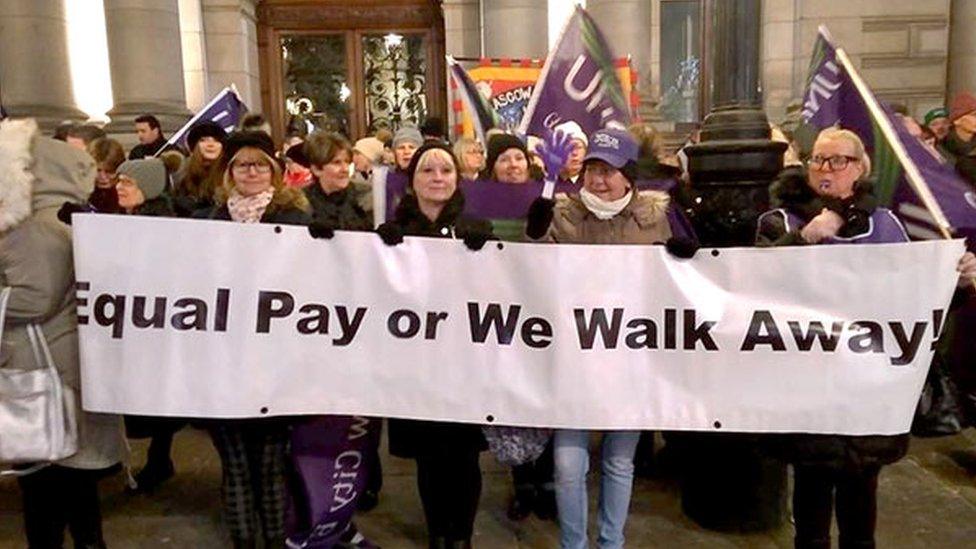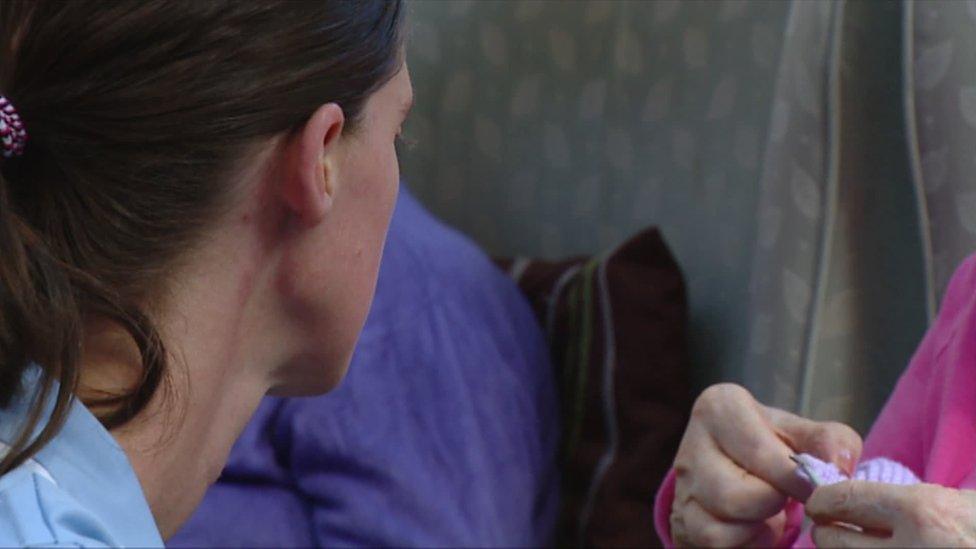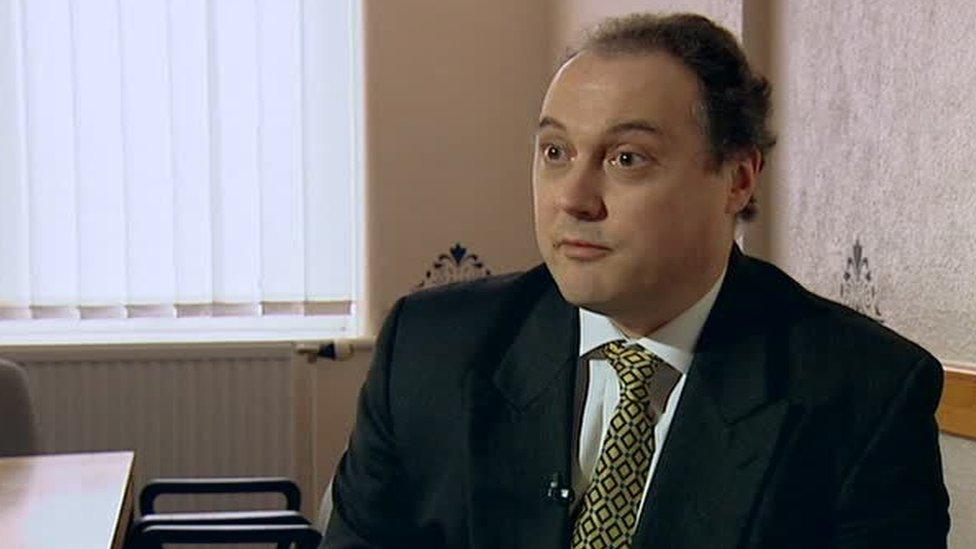Thousands to strike over equal pay dispute in Glasgow
- Published

Some claim the issue could cost the council as much as £500m to resolve
Two unions have served notice for industrial action on Glasgow City Council in a dispute over equal pay.
The GMB and Unison claim more than 8,000 workers will strike on 23 and 24 October.
The action will affect home care, schools and nurseries, and cleaning and catering services across the city.
A spokesperson for Glasgow City Council criticised the strike plan, and said the timescale for agreement demanded by the unions was unrealistic.
He said: "Unions agreed to the current timescale as part of the negotiations which have been ongoing for several months - and it is simply wrong to move to strike action when they know that it will not and cannot achieve anything.
"The unions also fully understand that we cannot continue to negotiate an equal pay settlement with them while they are engaged in industrial action. However, the vast majority of the claimants are represented by Action 4 Equality Scotland and we will continue negotiations with them during this time."
'Roadblocks to justice'
The unions claimed the council had been given ample time to reach an agreement.
GMB Scotland Organiser, Rhea Wolfson, said: "Our members are striking against decades of unresolved sex discrimination and because they can see the same roadblocks to justice being put in place by council officials yet again.
"Our members have demonstrated, they have marched, and they will bring this city to a standstill in their fight to get their employer to progress negotiations over the settlement of their equal pay claims.
"They have been robbed of hundreds of millions, if not billions of pounds - no one should be surprised that we are on the brink of strike action."
Mary Dawson, Glasgow chairwoman of Unison, added: "Our members are now standing up and fighting back. Low paid workers, mostly women who have had enough.
"We have given the council 10 months to make progress on addressing the historical discrimination suffered by these workers.
"However, the council has agreed nothing, offered nothing, and all we have had are meetings about meetings and talks about talks. It's time for some action."

Unions say the workers were paid less than those in male-dominated jobs
The equal pay claims relate to a job evaluation scheme introduced in 2006, which had been intended to eliminate gender pay inequality.
However, the new system built in a three-year payment protection for men who lost out on bonuses, which was last year ruled discriminatory.
A long court battle has also raged over the design of the scheme itself.
It saw mainly female workers, in jobs such as caterers, cleaners and care assistants, paid less than male workers in jobs that were deemed to be of equal value, such as refuse collection.
After years of employment tribunal and court battles, the council earlier this year promised to resolve the dispute through negotiation.
- Published23 August 2018

- Published24 August 2018
